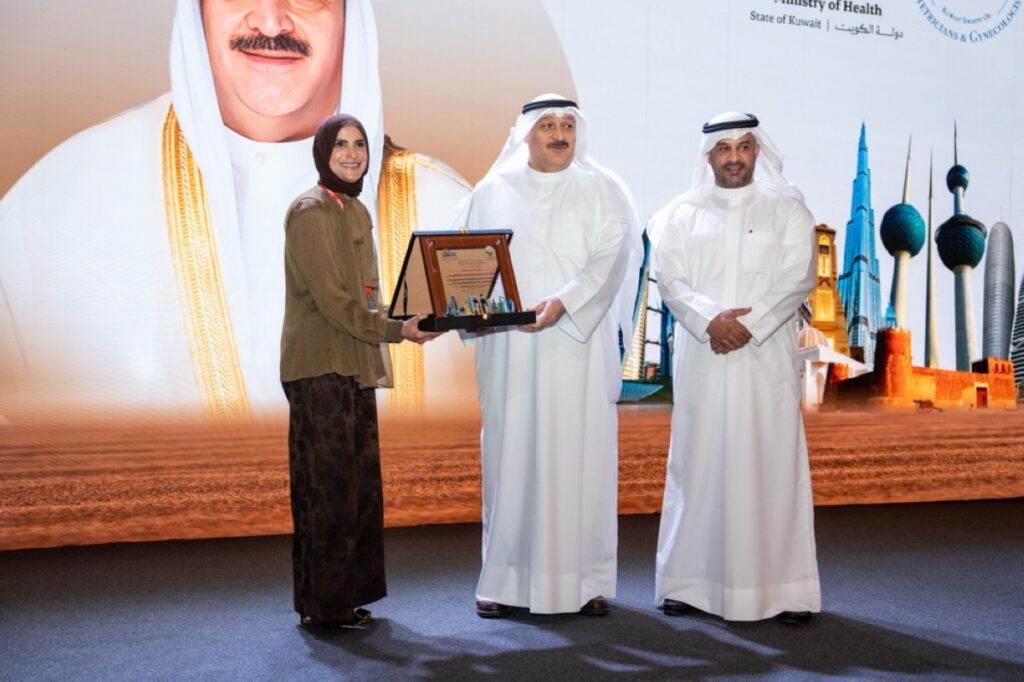KUWAIT: Minister of Health Dr Ahmad Al-Awadhi emphasized on Sunday that maternal-fetal medicine is a cornerstone of modern healthcare, directly safeguarding maternal health and ensuring a healthy start for newborns, ultimately shaping the wellbeing of future generations. His remarks came during the opening of the Second Gulf Conference on Maternal-Fetal Medicine, themed “Cooperation Among GCC Countries in the Field of Fetal Interventions”, attended by specialists and experts from across the GCC and beyond.
Dr Al-Awadhi described the conference as a key scientific platform for exchanging expertise and advancing modern medical practices. He highlighted Kuwait’s significant progress in maternal and child health services, achieved through modernizing healthcare infrastructure, developing medical personnel, and expanding specialized hospital capabilities. Notable achievements include the inauguration of Farwaniya Hospital in 2023, which houses 192 obstetrics and gynecology beds and six specialized operating rooms, and the opening of the new Maternity Hospital in 2025, featuring 789 beds, 59 delivery rooms, and 28 operating rooms.
Minister of Health Dr Ahmed Al-Awadhi delivers his speech during the opening of the Second Gulf Conference on Maternal and Fetal Medicine.- KUNA photos
Head of the Obstetrics and Gynecology Departments Council and Conference Chair Dr Amal Khader
He also noted the launch of the Maternity and Child Hospital in Ahmadi in 2025, with 637 beds and 21 operating rooms. Maternal-fetal medicine units at the Maternity Hospital and Farwaniya Hospital provide comprehensive diagnostic services for more than 4,800 pregnancies annually, reflecting the efficiency of Kuwait’s medical staff in managing high-risk pregnancies according to the latest international standards.
Dr Amal Khader, Head of the Obstetrics and Gynecology Departments and President of the Conference, highlighted that the scientific program covers rapid advancements in fetal interventions and prenatal sciences. Key topics include genetic counseling, prenatal diagnosis, early detection, fetal palliative care, family support, advanced fetal surgical interventions, maternal mental health, management of fetal infections and preeclampsia, fetal cardiac imaging and the ethical and legal aspects of maternal-fetal medicine.
Dr Khader emphasized that the conference combines theoretical knowledge with practical training, featuring three specialized workshops that adhere to the highest standards. Among these is a workshop on simulation-based learning, designed to establish robust foundations for medical education and create an effective training environment. She added that these practical sessions demonstrate the commitment of Kuwait and GCC obstetrics and gynecology teams to transferring advanced expertise to clinical practice and enhancing the quality of maternal and fetal healthcare across the region. — KUNA





